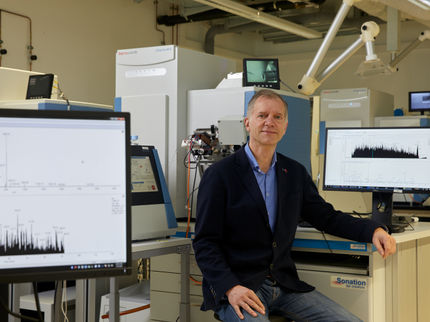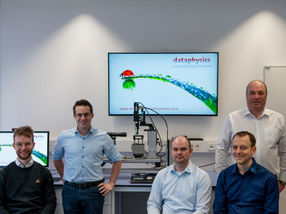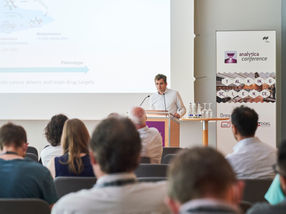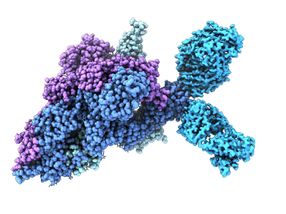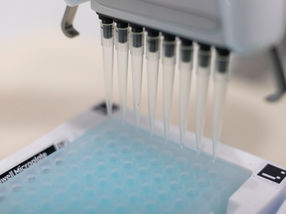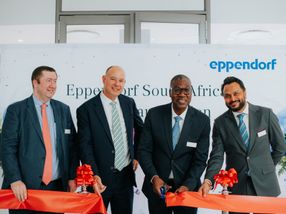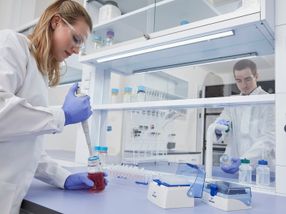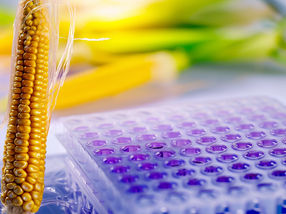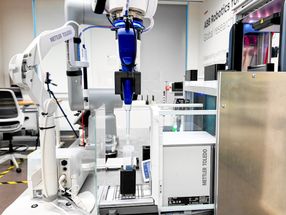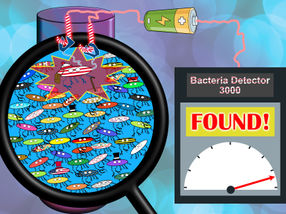Thermo Fisher Scientific and Intrinsic Bioprobes Announce Alliance in Mass Spectrometric Immunoassay (MSIA) Workflow Development
Thermo Fisher Scientific Inc. and Intrinsic Bioprobes (IBI) Inc. announced an alliance to co-develop and market a mass spectrometry solution that will enable researchers to perform quantitative, high-throughput, high-resolution protein biomarker assays. The solution couples the specificity of immunoenrichment with the sensitivity and quantitative capability of mass spectrometry to provide researchers with a more complete, higher-resolution view of the proteome. Initially, via an exclusive reseller agreement, the solution will be applied to the detection of human parathyroid hormone (PTH) and its variants, which may be useful as biomarkers for bone diseases and diseases of the endocrine system.
As part of the arrangement, Thermo Fisher Scientific will integrate IBI’s proprietary immunoenrichment technology with Thermo Scientific automated sample handling and mass spectrometer systems. Scientists at the Biomarkers Initiatives in Mass Spectrometry (BRIMS) Center, a Thermo Fisher Scientific center of excellence, will collaborate with IBI to develop a mass spectrometric immunoassay (MSIA) workflow for research laboratories. Thermo Fisher Scientific will market, distribute and support the solution and the workflow.
IBI’s proprietary immunoenrichment technology is based on its patented pipette tip that integrates a high-throughput, high-binding-capacity microcolumn activated with antibodies. This technology addresses one of the key challenges of biomarker discovery and validation, the isolation and analysis of very low-abundance proteins such as PTH in complex biological matrices. Conventional approaches involving depletion of interfering high-abundance proteins are time-consuming and introduce analytical variability. Compared to other immunoenrichment approaches, IBI’s approach offers more effective capture of low-abundance proteins.
A key challenge in proteomics research is the ability to differentiate between, and accurately quantitate, intact proteins and their variants. Traditional enzyme-linked immunosorbent assays (ELISA) are limited by the inability of the antibodies to discriminate between all variants and quantify their abundance. A solution is to use the specificity of mass spectrometry to identify and quantitate microheterogeniety. However, many researchers have been stymied by the lack of an integrated, high-throughput mass spectrometry workflow that is robust and reproducible from laboratory-to-laboratory.
“We are extremely enthusiastic about incorporating IBI’s proprietary technology into comprehensive workflows that couple immunoenrichment to the power of high-resolution, quantitative, mass spectrometry,” said Mary Lopez, Ph.D., director, Thermo Fisher Scientific’s BRIMS Center. “Over the last year, we have worked closely with IBI to develop a reliable, quantitative assay for parathyroid hormone and its variants. This work, recently published in the Journal of Clinical Chemistry, demonstrates a workflow that enables detection and quantification of very-low-abundance intact PTH, and more importantly, several novel PTH protein variants that cannot be detected using conventional assays.”
Topics
Organizations
Other news from the department business & finance

Get the analytics and lab tech industry in your inbox
From now on, don't miss a thing: Our newsletter for analytics and lab technology brings you up to date every Tuesday. The latest industry news, product highlights and innovations - compact and easy to understand in your inbox. Researched by us so you don't have to.
Most read news
More news from our other portals
See the theme worlds for related content
Topic world Antibodies
Antibodies are specialized molecules of our immune system that can specifically recognize and neutralize pathogens or foreign substances. Antibody research in biotech and pharma has recognized this natural defense potential and is working intensively to make it therapeutically useful. From monoclonal antibodies used against cancer or autoimmune diseases to antibody-drug conjugates that specifically transport drugs to disease cells - the possibilities are enormous

Topic world Antibodies
Antibodies are specialized molecules of our immune system that can specifically recognize and neutralize pathogens or foreign substances. Antibody research in biotech and pharma has recognized this natural defense potential and is working intensively to make it therapeutically useful. From monoclonal antibodies used against cancer or autoimmune diseases to antibody-drug conjugates that specifically transport drugs to disease cells - the possibilities are enormous
Topic World Spectroscopy
Investigation with spectroscopy gives us unique insights into the composition and structure of materials. From UV-Vis spectroscopy to infrared and Raman spectroscopy to fluorescence and atomic absorption spectroscopy, spectroscopy offers us a wide range of analytical techniques to precisely characterize substances. Immerse yourself in the fascinating world of spectroscopy!

Topic World Spectroscopy
Investigation with spectroscopy gives us unique insights into the composition and structure of materials. From UV-Vis spectroscopy to infrared and Raman spectroscopy to fluorescence and atomic absorption spectroscopy, spectroscopy offers us a wide range of analytical techniques to precisely characterize substances. Immerse yourself in the fascinating world of spectroscopy!
Topic World Mass Spectrometry
Mass spectrometry enables us to detect and identify molecules and reveal their structure. Whether in chemistry, biochemistry or forensics - mass spectrometry opens up unexpected insights into the composition of our world. Immerse yourself in the fascinating world of mass spectrometry!

Topic World Mass Spectrometry
Mass spectrometry enables us to detect and identify molecules and reveal their structure. Whether in chemistry, biochemistry or forensics - mass spectrometry opens up unexpected insights into the composition of our world. Immerse yourself in the fascinating world of mass spectrometry!
